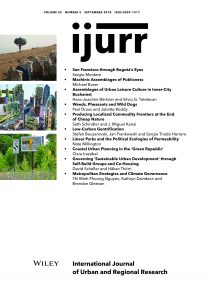There is no single ‘great’ commodity frontier whose exploitation under current socio‐technical conditions could fuel capital accumulation at the global scale. According to Jason Moore, this represents the ‘end of Cheap Nature’ and signals a terminal crisis for capitalism as we know it. In this article we complicate this assertion by showing how, in the context of global environmental governance frameworks of carbon control, a diverse range of actors situated at multiple scales are intensifying the use of cities and their hinterlands for the production/transgression of localized commodity frontiers. We draw on scholarship on uneven geographical development, state‐led restructuring and eco‐scalar fixes to present two case studies from different segments of the carbon cycle in the global South. The first case demonstrates how the introduction of waste‐to‐energy technology in Delhi facilitated the generation of ‘carbon credits’ while waste matter itself became a commodity. The second discusses attempts by the Brazilian state of Amazonas (Amazônia) aspiring to shift from rainforest exploitation to financialized conservation supported by the ‘green global city’ functions of metropolitan Manaus. These cases demonstrate that although the global carbon‐control regime may enable accumulation, implementation remains speculative, and localized commodity frontiers provoke social resistances that jeopardize their durability.
Details
Written by:
Seth Schindler & J. Miguel Kanai
Digital Object Identifier (DOI)
10.1111/1468-2427.12665
About DOI

